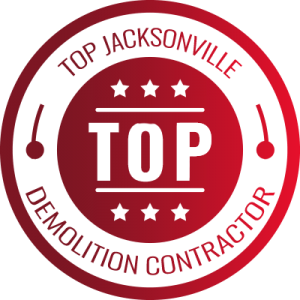



Industrial demolition is a complex task that requires careful planning and execution. In Jacksonville, where industrial structures can vary widely in size and materials, ensuring safety throughout the demolition process is crucial. Whether it’s dismantling an old factory or clearing a site for new development, each project brings unique challenges that need to be addressed.
Safety isn’t just about protecting the workers on-site; it’s also about considering the environment and the community around the project. Implementing effective safety protocols not only prevents accidents but also ensures compliance with local regulations. With the right plans, equipment, and communication strategies, industrial demolition can proceed smoothly and efficiently.
From assessing the site to managing hazardous materials, a successful demolition project involves multiple steps and coordination with various stakeholders. By understanding the intricacies involved and preparing accordingly, demolition teams can minimize risks and maximize efficiency. In this guide, discover essential tips for a safe and efficient industrial demolition in Jacksonville.
Understanding the Site and Structural Assessment
A successful industrial demolition in Jacksonville starts with a thorough site evaluation. This step helps identify potential challenges and ensures the project complies with necessary regulations. During evaluation, factors like access routes, nearby structures, and environmental conditions need attention. This analysis allows for the development of a strategic plan tailored to the specific demolition site.
Assessing key structural elements is equally crucial. Understanding the building’s framework involves examining load-bearing walls, columns, and beams to determine the safest demolition method. Inspecting the condition of these structures helps avoid unforeseen complications during demolition. Knowing the types of materials used, like steel or concrete, informs the necessary tools and techniques for effective dismantling.
Conducting detailed surveys ensures a comprehensive understanding of the site and allows teams to anticipate any issues that might arise. This preparation makes the demolition process smoother, reducing risks and potential delays. By investing time in site and structural assessments, teams are better equipped to handle the complexities of industrial demolition, ensuring safety and efficiency from the start.
Implementing Effective Safety Protocols
Safety is a top priority in any demolition project. Creating a comprehensive safety plan is essential, acting as a guide to protect all team members and the surrounding community. The safety plan should include detailed risk assessments and emergency procedures to handle incidents like utility disruptions or unexpected structural failures. Training sessions for crew members ensure everyone understands the protocols and can act swiftly in emergencies.
Investing in essential safety gear and equipment is critical for worker protection. Key items include:
- Hard Hats: Protect against falling debris and head injuries.
- Safety Glasses: Shield eyes from dust and shards.
- Gloves: Provide grip and protect hands from sharp edges.
- High-Visibility Vests: Make workers visible in varying light conditions.
Regular equipment checks guarantee that all gear is in good condition, offering reliable protection. Moreover, clearly marked zones and signage around the site help keep unauthorized personnel at a safe distance, further reducing risks.
By implementing robust safety protocols and ensuring all equipment meets standards, demolition teams can focus on their tasks with confidence. This approach not only secures the work environment but also enhances project efficiency, laying a strong foundation for a successful industrial demolition.
Managing Environmental Concerns
Handling environmental concerns is crucial in industrial demolition projects. Identifying hazardous materials is the first step in managing these risks effectively. Common materials such as asbestos, lead-based paints, and chemical residues need careful attention. Conduct thorough inspections and tests to locate these substances before demolition begins. Once identified, follow safe removal practices to prevent environmental contamination and ensure worker safety.
Compliance with local environmental regulations is a vital component of the demolition process. Jacksonville has specific guidelines to safeguard both people and the surroundings. Ensure all permits and documentation are in order to avoid legal complications. Implementing best practices for recycling and waste management helps in minimizing the project’s environmental footprint. By adhering to local laws and prioritizing environmentally friendly practices, demolition teams can successfully mitigate the impact on Jacksonville’s ecosystem.
Coordinating with Local Authorities and Stakeholders
Effective coordination with local authorities and stakeholders is essential for industrial demolition success. Securing necessary permits and ensuring compliance with legal requirements keeps the project on the right track. Permits might include building, waste disposal, and environmental clearances. Early engagement with the appropriate bodies helps in understanding timelines and any special conditions.
Communication strategies play a significant role in maintaining transparency with stakeholders and authorities. Keep all parties informed about project progress, timelines, and any potential disruptions. Regular updates can prevent misunderstandings and maintain good relationships with local communities and businesses. Conducting neighborhood meetings or distributing regular project newsletters are practical ways to engage stakeholders.
Working closely with these groups ensures smoother operations and fosters community trust. By prioritizing open communication and compliance, demolition teams can navigate challenges effectively and maintain project integrity.
Creating a Safe Future for Demolition
By focusing on these essential strategies, industrial demolition projects can operate successfully in Jacksonville. Safety, environmental responsibility, and strong communication form the backbone of a successful demolition strategy. With careful planning and execution, these projects can lead to new opportunities and contribute positively to the local landscape.
Industrial demolition involves many moving parts, but a well-organized approach leads to positive outcomes. Through expertise and dedication to best practices, Jacksonville can see development that respects both the environment and community well-being.
Need assistance with your industrial demolition project? Contact Elev8 Demolition for expert demolition services that prioritize safety, environmental care, and effective communication. Let us help you navigate the complexities of demolition with confidence, ensuring your project meets all necessary standards while achieving your goals efficiently.

